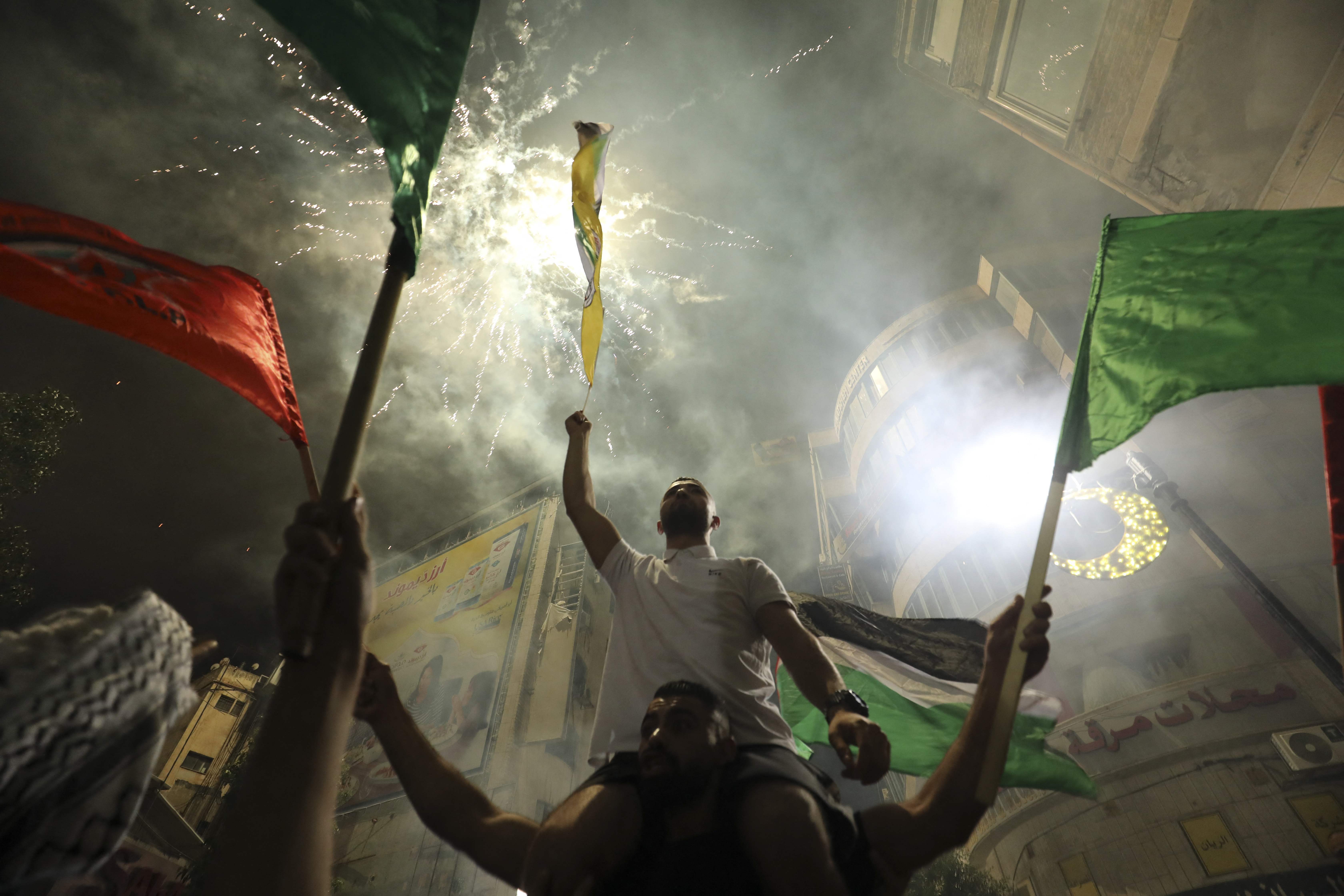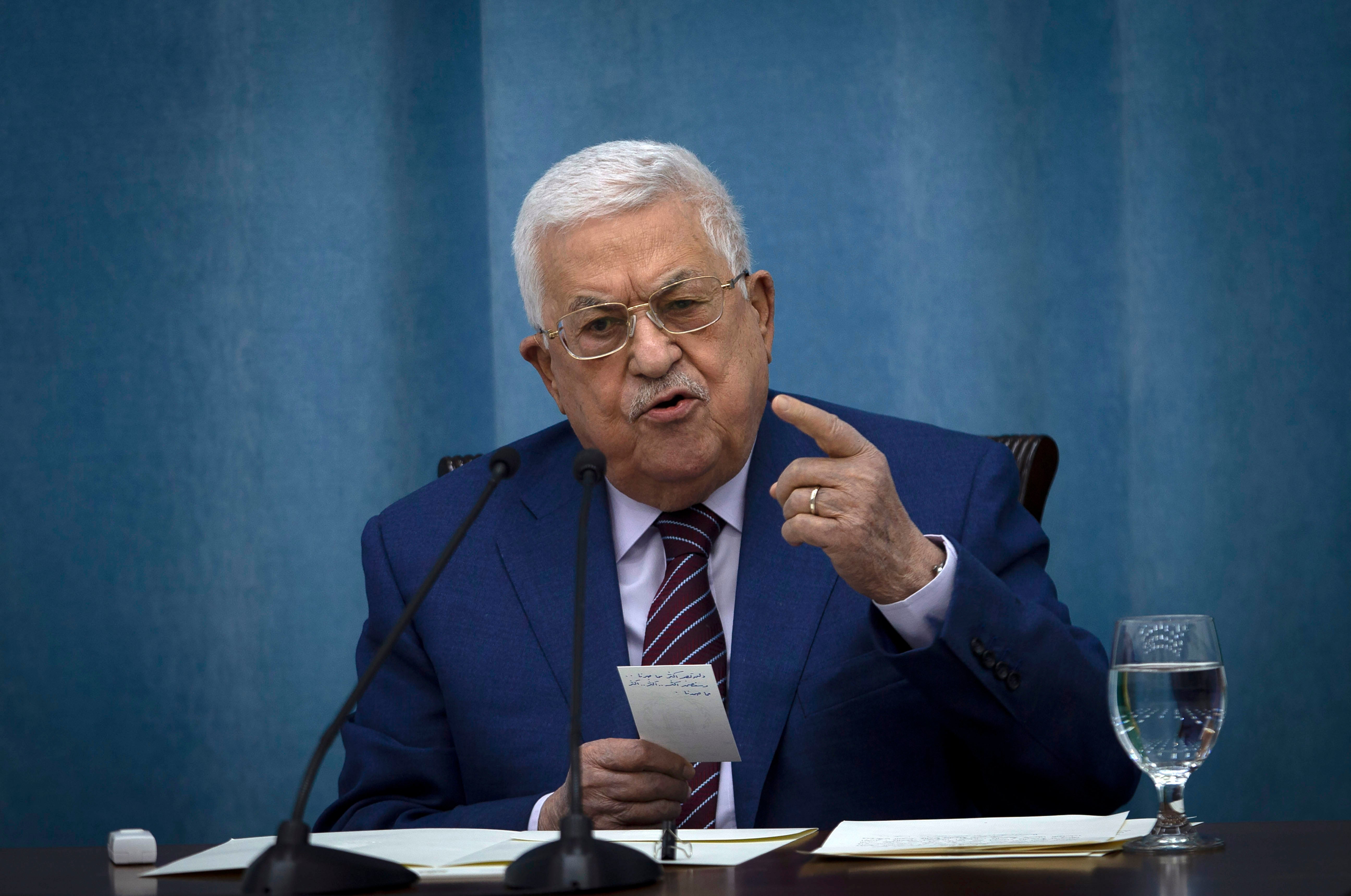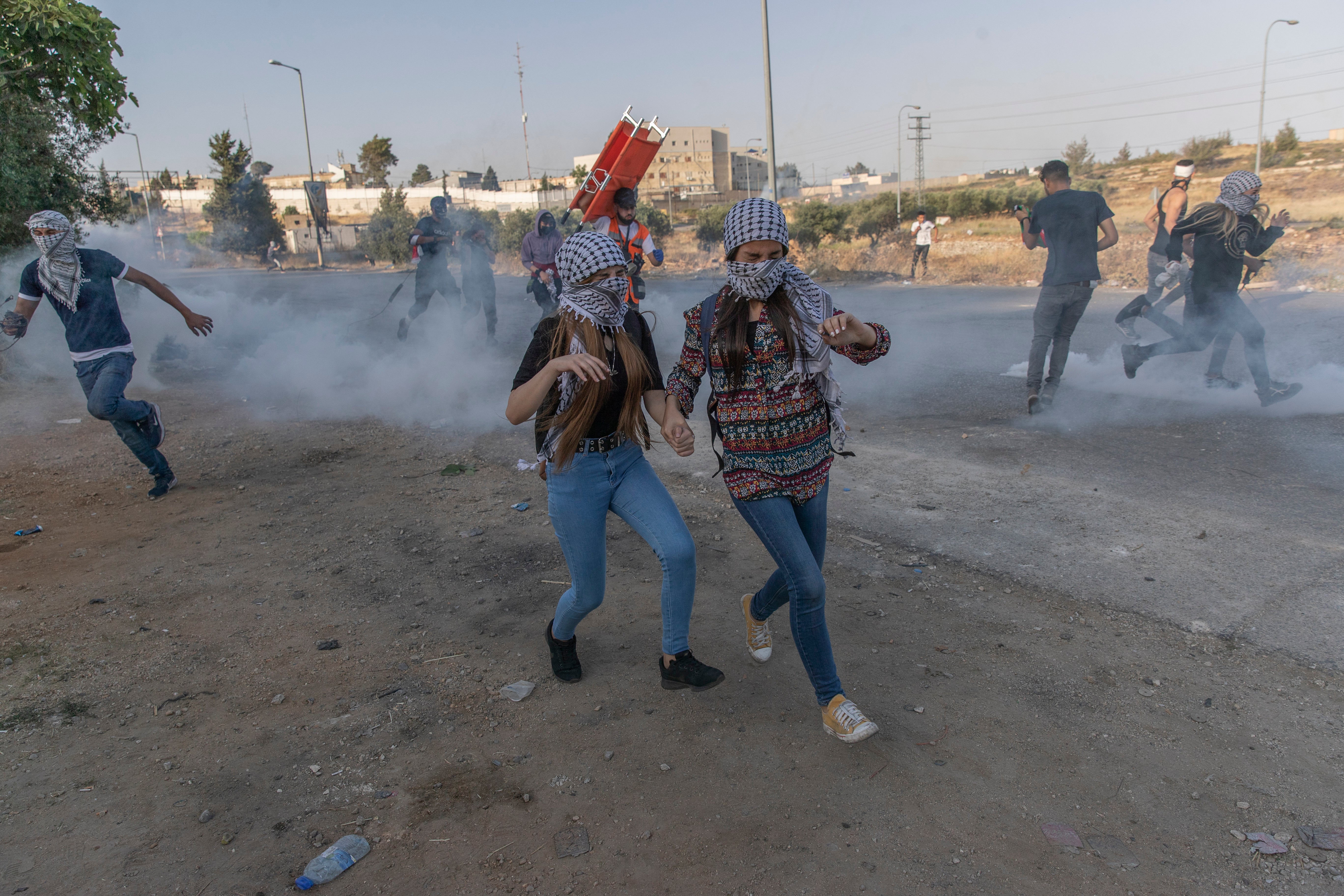The rise of Hamas: support for Gaza militant group grows in West Bank
Seen as standing up to Israel, and contrasting with the stale old leadership of Fatah, Hamas appears to be exploiting a Palestinian power vacuum, reports Kim Sengupta in Ramallah


Your support helps us to tell the story
From reproductive rights to climate change to Big Tech, The Independent is on the ground when the story is developing. Whether it's investigating the financials of Elon Musk's pro-Trump PAC or producing our latest documentary, 'The A Word', which shines a light on the American women fighting for reproductive rights, we know how important it is to parse out the facts from the messaging.
At such a critical moment in US history, we need reporters on the ground. Your donation allows us to keep sending journalists to speak to both sides of the story.
The Independent is trusted by Americans across the entire political spectrum. And unlike many other quality news outlets, we choose not to lock Americans out of our reporting and analysis with paywalls. We believe quality journalism should be available to everyone, paid for by those who can afford it.
Your support makes all the difference.Standing with a group of friends in Manara Square reflecting on what lay in the future, Samir Awad could see nothing but division and strife. “There’s no hope left here, only anger, that’s what most of us feel,” he said.
The anger that Samir, 23, felt was not just towards the Israelis, but also the Palestinian leadership, which had not only failed to deliver its promise of statehood, but also, as he saw it, the basic needs of the people they claimed to represent.
The latest conflict between Israel and Hamas had started with clashes in Israel between parts of the Arab community and the security forces. And while air strikes and rocket fire were exchanged across the border, these violent confrontations continued.
There is now a ceasefire, as there has been after the past three Gaza wars, but with little expectation of a lasting peace. The latest conflict was also preceded by violent confrontations between Arabs and Jews, triggered by the eviction of Palestinian families in the Sheikh Jarrah neighbourhood in east Jerusalem and religious confrontations at the al-Aqsa mosque.
Jews and Arabs marched together in Tel Aviv on Saturday calling for an end to violence. The day before, less than 12 hours after the ceasefire, there was violence once again outside al-Aqsa after Friday prayers, with police firing tear gas and rubber bullets at demonstrators after, they said, stones had been thrown at them.
Israeli police have made sweeping arrests, believed to number more than 1,500, of whom 90 per cent were Palestinian, despite a significant number of communal attacks by right-wing Jewish groups. The Israeli media has reported that another 500 people have been targeted for detention by the security forces.
Last week in Ramallah a crowd of around 2,500 gathered at Manara, a traditional venue for protests, and marched towards the Israeli settlement of Beit El. Shots were fired in the confrontation that ensued with the military, and one of the demonstrators, 25-year-old Muhammed Ishaq Hamid, was killed.

On the same day, 15-year-old Wael Bernat died after being shot in the head in the village of Bil’In, and Adham Fayez Musa Kashif, 20, was killed in Ramallah, also after security forces opened fire.
Two Israeli soldiers were also shot during the Beit El clash. The military said two men with AK-47 Kalashnikov rifles had opened fire. It was unusual, said an official, to find AK-47s in the West Bank, and this was a worrying development which was being investigated.
“Yes I went on the protest, it was the right thing to do: we are fighting the occupation,” said Khaled Hussein, 20, who like his friend Samir, is unemployed. “Of course people were angry but we did not attack the police. They started shooting and we had to run to save ourselves.”
“I knew Muhammed [Ishaq Hamid], he was a good man. He was shot and we hoped that he would recover, but he died in hospital. We were protesting not just about the killings taking place in Gaza but also what the Israelis are doing in Jerusalem, taking peoples’ homes. They will continue to try to take our land, and we will continue to resist back. There is no one helping us, so we need to stand up for ourselves.”
It is not just the international community but the Palestinian leadership in West Bank which was blamed by the young men for not standing up to the Israeli government.
Fatah and the Palestinian Authority, led by Mahmoud Abbas, and with its headquarters in Ramallah, had called for strikes and protests at the actions of the Israeli government. But there is deep scepticism among many about 85-year-old Abbas providing the necessary leadership.
Mohammed al-Khouri, a businessman who was passing by, wanted to join in the conversation. “Abu Mazan [Abbas] is too rich and too old to care about us. We want him to go. He knows that, and he is doing everything to make sure he keeps the power and the money,” he said.
As the stock of Abbas and Fatah has fallen, that of Hamas has risen, with an increasing number seemingly considering the movement as the real defender of the Palestinian people, the real resistance willing to fight back against Israel.
“I used to support Fatah, I come from a Fatah family. I did not support Hamas in the past. But we can see how they are standing up to Israel. Despite all the bombings they have carried out, and all the people they have killed, the Israelis cannot defeat them”, said Mr al-Khouri.
As the young men around him nodded in agreement, Mr al-Khouri continued: “I would vote for them, but I don’t think there’ll be an election.”
The first Palestinian parliamentary and presidential elections in 15 years were due to take this month and in July, but Mr Abbas postponed them indefinitely, pointing to the Israeli government’s refusal to allow the polls to take place in east Jerusalem as the reason.
An opinion poll conducted by the Israeli Channel 13 before the conflict found that 32 per cent of Palestinian voters supported Hamas, with just 17 per cent for Mohammad Abbas’s Fatah. Another 13.9 per cent supported Mohammed Dahlan, a rival to Mr Abbas. On the PA presidency, nearly 28 per cent backed Hamas leader Ismail Haniyeh and 11 per cent Mr Abbas.
Hanan Ashrawi, the internationally known veteran Palestinian politician, and a former minister in the Palestinian Authority, said: “In this conflict Hamas projected itself as representing Palestinians in Jerusalem and the West Bank, not just Gaza. And to a large extent they succeeded. Many more people were carrying the green flag in Jerusalem and Ramallah. This hasn’t happened before with such clear expression of support.
“People are saying, look, all these Arab and Muslim regimes and armies do nothing. But a small group with minimal means took the battle to Israel. It sends a message that we are alive, and we will not lose the spirit of resistance.

“I will not vote for Hamas. I oppose an Islamic state just as I oppose a primarily Jewish state. I don’t think states should be based on religion. And as a woman I oppose some of its social agenda.
“But Hamas has evolved, and it is gaining support among young people, even Christians. I don’t think Hamas will gain an overall majority in an election, but Hamas has every right to be represented in a pluralistic system. Israel wants to convince the world that Hamas are terrorists. But we believe that Israel practices state terrorism, consciously and deliberately.”
Stun grenade casings lie on the road leading up to the Beit El settlement. The same road rolls down in the other direction towards Ramallah city centre, flanked by some high-rise buildings.
“ Hotels,” gestured Samir Awad, who had accompanied us. “There were jobs for us there two years ago, with lots of guests.
“Now, with Covid and the troubles, no one comes, I don’t know where jobs will come from; they want to keep us poor while surrounding us with settlers.”
Join our commenting forum
Join thought-provoking conversations, follow other Independent readers and see their replies
Comments